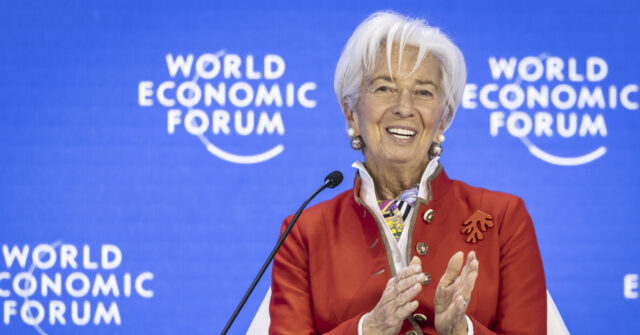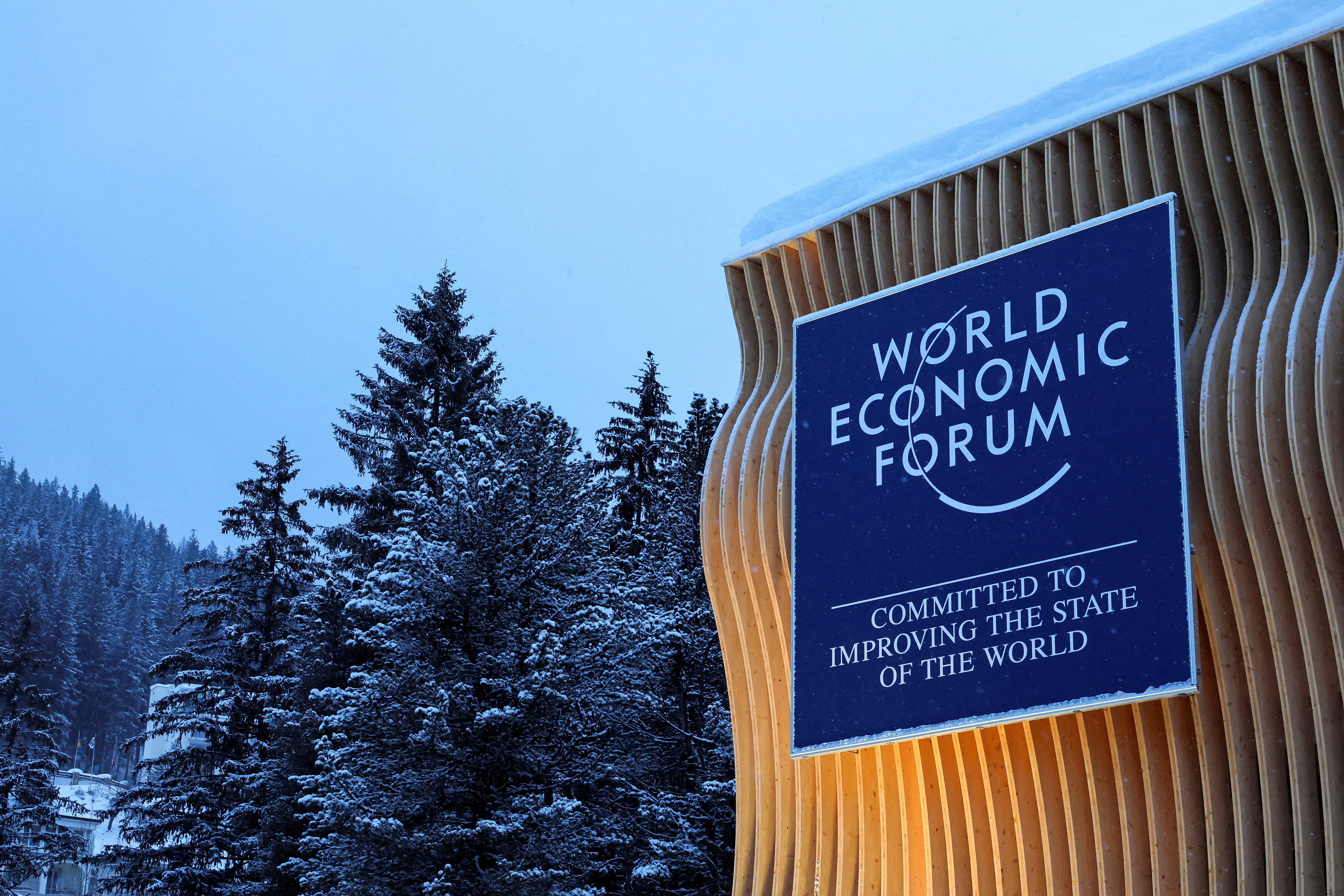





The 2025 World Economic Forum (WEF) Annual Meeting, held from January 25 to 24 in Davos, Switzerland, gathered a diverse array of leaders, including U.S. President Donald Trump, who participated via video conference to promote American exceptionalism [21641369]. The forum concluded with leaders expressing a mix of optimism about economic growth and technological advancements, despite ongoing global challenges. Notably, the International Monetary Fund (IMF) raised its global growth forecast for 2025 from 2.2% to 2.7%, highlighting a positive outlook for the global economy [21641369].
Trump proposed a corporate tax cut from 21% to 15% and emphasized the need for the U.S. to address its trade deficits, particularly with the EU. In response, Christine Lagarde, president of the European Central Bank, advocated for negotiation over tariffs rather than confrontation, calling for a deeper analysis of trade figures to understand the complexities involved [48bcb63f][260d7e72]. Kristalina Georgieva of the IMF echoed this sentiment, supporting open trade relationships as essential for global economic stability [260d7e72].
Muhammad Yunus, Nobel laureate and leader of Bangladesh's government, criticized the dangers of praising politicians focused solely on GDP growth, highlighting the need for a more nuanced understanding of economic progress [0f3a4101]. The forum also addressed geopolitical risks, including supply shocks and armed conflict, which were highlighted as top concerns. Trump emphasized energy dominance and the importance of natural gas supplies for Europe, while European leaders expressed worries about the investment climate, with BlackRock's Larry Fink noting a sense of pessimism in Europe [21641369].
In the context of the ongoing Ukraine conflict, Trump proposed immediate negotiations with Russian President Vladimir Putin, while Ukrainian President Volodymyr Zelenskiy called for a European peacekeeping contingent to stabilize the situation [7906c505]. Zelenskiy emphasized Europe's need for strength and security, reflecting the urgency of the geopolitical landscape [f7129f81]. Lagarde warned of existential threats to Europe's economy, urging swift action on deregulation to remain competitive against the U.S. [7906c505].
Artificial intelligence (AI) adoption was a significant topic, with discussions on how it is reshaping business landscapes and raising concerns about its impact on the workforce [7906c505][21641369]. Executives expressed hope for green energy despite Trump's pro-fossil fuel stance, indicating a divide in perspectives on environmental policies [0f3a4101]. Additionally, diversity initiatives faced criticism, and populist leaders were urged to deliver results amid rising expectations [21641369].
DTEK CEO Maxim Timchenko announced a $400 million deal for wind turbines from Danish Vestas, showcasing Ukraine's commitment to renewable energy [f7129f81]. The Ukraine House at Davos hosted significant discussions on seizing Russian assets for reparations, indicating a proactive stance on addressing the consequences of the conflict [f7129f81].
As the WEF concluded, leaders continued to navigate the complex interplay of economic stability, technological advancement, and geopolitical challenges, underscoring the importance of collaboration in addressing these interconnected issues. The forum also showcased space exploration projects, reflecting a forward-looking approach to global challenges [21641369].